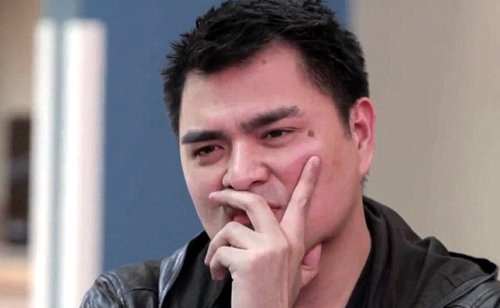By David Bauder
AP Television Writer

Phillipines-born journalist Jose Antonio Vargas
NEW YORK (AP) — One of the challenges for makers of the MTV documentary “White People” was getting folks to talk about race when they didn’t feel the issue concerned them — like those quoted as saying they consider white the “default race” or “normal.”
So filmmaker Jose Antonio Vargas recorded white Americans in situations where they were forced to confront racial identity issues. He found to a white man who attends a traditionally black college, teachers on a South Dakota reservation where resentment toward whites is palpable, a young Brooklyn man bewildered by the Asian immigrants on his block, a white man who teaches a college course on white privilege.
The documentary’s trailer alone created a stir. The full film debuts this month and is offered simultaneously online.
“The only thing I fear is not having these conversations,” Vargas said. “What I fear is the silence, the indifference, the ignorance. We can no longer have a conversation about race and diversity without having white people in it.”
Racial issues are timely, topping the news during the past several months with the “black lives matter” campaign in response to police shootings and the debate over the Confederate flag. MTV President Stephen Friedman said he’s wanted to look at how whites perceive themselves for several years, but it wasn’t until he met Vargas that he felt he’d found the right person to do it.
Vargas is best known for “Documented,” a film where the Philippines-born journalist talks about his status as an undocumented U.S. resident. (His status hasn’t changed since then).
Race was a difficult topic, not simply because it’s uncomfortable to talk about. Shuns, slights and stereotypes aren’t a regular part of life for most whites. More than four-fifths of MTV viewers polled said their families had taught them that everyone should be treated the same, regardless of differences.
A colorblind upbringing is admirable, an attitude that no doubt leads to young people being more accepting of gay marriage, for example, than older Americans, Friedman said. But many also look past the lessons of history to question the need for affirmative action. Vargas talks to a white student with a 3.8 grade point average in high school who now goes to a community college; she and her mother are convinced that racial minorities get the edge in college scholarships and admissions. “I feel like I’m being discriminated against,” she said.
Attitudes hidden beneath the surface are revealed when Vargas talks to the white student who goes to a black college and some of his friends. A white Italian-American from Brooklyn’s Bensonhurst neighborhood is angered by many of the Asians who moved into his neighborhood not wanting to help with a block party until it was pointed out that how his ancestors were looked down upon generations earlier.
Vargas is a facilitator who poses questions throughout the film. His eyebrow is a character of its own, each exaggerated lift conveying skepticism or surprise.
“Part of our job with this special is to really create the space to have an honest dialogue,” he said, “and I think we achieved that.”
Some critics have pounced on MTV before seeing the documentary. Rush Limbaugh’s website proclaims, “MTV Documentary Shames White Youth.” The conservative Breitbart news service headlined a story, “Dear Morons: You are Paying for an Illegal Alien’s MTV White-Shaming Film.” The “paying for” reference alludes to cable subscribers being required to pay for MTV as part of their service even if they don’t necessarily want the network.
“So this is a documentary produced by an illegal immigrant that’s going to run starting July 22nd on MTV on the problems white people have caused in America,” Limbaugh said on his show last week. “Everybody’s shaking their head in there, `Oh, this is horrible, this is terrible.’ Yeah, it is, but nobody is going to do anything about it.”
Friedman said he believed the film doesn’t shame white people. Quite the opposite, he said.
“If you see the young people in that film, I think every one of them, because it was done in a respectful way, feels like they came away with a deeper understanding of their community and different people,” he said. “It enabled them to walk in their shoes.”
Given the attention on racial issues now, it’s not surprising that the idea of the film itself will grate on some nerves, he said.
“What I would hope is that people would watch the documentary, because there is nothing about it that is provocative when you sit through it,” he said. (end)



